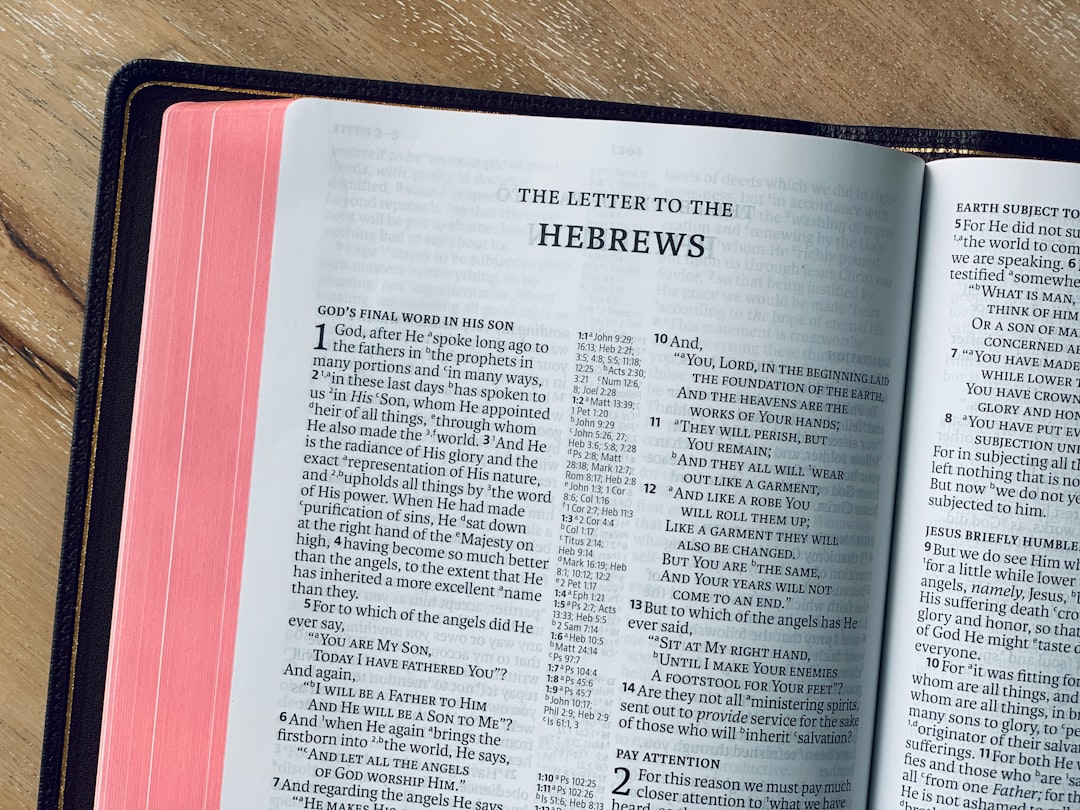Hebrews in a Nutshell
Hebrews is a strange and difficult book.
First, it seems to ramble on about things that are not exactly burning topics of discussion over breakfast or bitterly debated on Christian blog sites.
It begins with a complex discussion of angels and what God did not say to them; continues with a brief treatment of Psalm 95 and what ‘rest’ really means; moves on to discuss some bizarre chap named Melchizedek whom Abraham stumbled across; goes into a discussion about the furniture in the Tabernacle, and ends with an exhortation to ‘go outside the camp’.
Not exactly the kind of stuff that comes up routinely in conversation.
Second, Hebrews has a different feel and texture compared to the Gospels and Paul’s letters.
Though many in the ancient church, erroneously, thought that Paul wrote Hebrews, entering the world of Hebrews after a closer study of Paul is like listening to Monteverdi after listening to Bach.
We are in the same world, but the colour is different; or in musical terms, the notes are similar, but they are being played on different instruments.
Third, there is also a concerted focus on animal sacrifice that is completely foreign to our own culture.
Most of us are quite happy to purchase our meat from places like Tescos or Walmart conveniently wrapped up in styrofoam packaging with no thought of how it got there. Unless you’ve lived on a farm or worked in an abattoir, you probably haven’t seen any animals killed.
We also tend to associate sacrifice with the archaic rites of ancient peoples or else regard it as a colourful religious metaphor for giving up something like career or wealth.
In Hebrews, however, sacrifice constitutes one of the key images for what Jesus’ death means and what it achieves, and yet, the Old Testament rituals concerning sacrifice are unfamiliar to most of us.
The strangeness and difficulty of Hebrews can be counterbalanced with its sameness and familiarity with the New Testament message as a whole.
Ultimately, Hebrews is telling the same story as the Evangelists, St. Paul, St. Peter, and John the Seer. That is how the story of the world, and of Israel, has led up to a dramatic point, namely, the establishment of the true worship of the one true God.
Whereas the Old Testament provided the scaffolding which pointed ahead to God’s intention to build a new Jerusalem, to form a multi-ethnic Abrahamic family, and to put the world to right, Hebrews declares that scaffolding is eclipsed by a new building, the fulfillment of the scriptural hopes in Jesus, the Son.
For in Jesus the Messiah, we find all the emblems of Israel’s call and all the instruments of their vocation (temple, law covenant, priesthood, cultus, Mt. Zion), only now they are expressed in the Messiah and his people.
Jesus provides everything that the Old Testament has, only better. A better high priest, a better sacrifice, and a better covenant.
We could summarize Hebrews this way: Jesus is better!
HT:
Carson, D.A. Audio Sermon. Jesus is Better: Don’t Apostatize.
Wright, N.T. The New Testament and the People of God (COQG 1; London: SPCK, 1992), 409-10.
__________. ‘The Final Sacrifice,’ in Following Jesus; Biblical Reflections on Discipleship (London: SPCK, 1994), 3-10.
Get 50% off Logos library expansion packs on biblical and systematic theology.




The authorship of Hebrews is interesting debate.. However, I am curious to know why the TR states this at the end of Chapter 12 verse 25 " πρός Ἑβραίους ἐγράφη ἀπό τῆς Ἰταλίας διά Τιμοθέου "